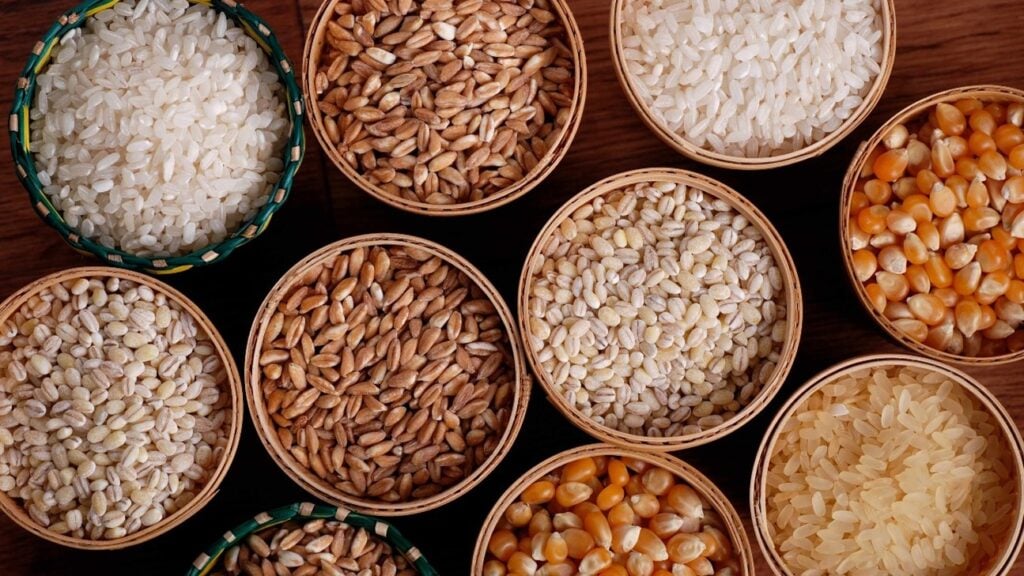
Carbohydrates along with fats and protein are the three main nutrient groups in the food we consume. During the digestion our body breaks them down to elements that can later use for energy.
Carbohydrates are the principal source of energy for our body, and we have two different types depending on their molecular form. Complex carbohydrates contain longer chains of sugar molecules in comparison to simple carbohydrates. Each type of carbs increases blood sugar levels but not in the same way.
Carbohydrates are made up of three components: fiber, starch, and sugar. Fiber and starch are complex carbs, while sugar is a simple carb. The nutrient quality of a food is depended on how much fiber, starch, and sugar it has.
Simple Carbohydrates are found in a big variety of foods. They are categorized as single sugars or monosaccharides such as glucose and fructose, and double sugars or disaccharides such as sucrose (table salt) and lactose.
Even though simple carbohydrates in the form of sugar are added to many foods and beverages such as candy, sugary drinks, syrups, juice concentrates and baked goods, they are also found in smaller amounts in some fruit and dairy products.
Even though in most diets it is recommended to limit the consumption of simple carbohydrates especially those found in processed products, there are many cases of foods that contain simple carbs but are suitable for a healthy diet.
Many fruits and vegetables may contain simple carbohydrates, but have a rich micronutrient content, and they offer us important vitamins and minerals. On the other hand, milk and dairy products that contain lactose (which is a simple sugar) are also rich in calcium, protein, and vitamin D.
Complex Carbohydrates are found in wholefoods and have a high nutritional content. They are found in whole grains such as brown rice, barley, buckwheat, bulgur, oats, wild rice and spelt.
On the other hand, refined grains are also complex carbohydrates, but they have a lower nutritional value than whole grains. Refined grains are products as the white flour, cornmeal, white bread, and white rice. Ultimately rich in complex carbohydrates are many vegetables and fruit and all legumes and nuts.
Complex Carbs are divided to types: fiber and starch. We have foods higher in fiber such as fruits, vegetables, nuts and beans and others higher in starch like potatoes, oats, and rice.

As we have mentioned earlier complex carbohydrates make longer and more complex chains of sugar molecules, so they take more time to digest than simple carbs do. That’s why they don’t have an instant impact on our blood sugar levels.
When we consume simple carbohydrates our glucose levels rise immediately, and we might feel a rush of energy that lasts for a short period of time. On the other hand, complex carbs supply a slow and steady release of glucose in the blood stream thus, they provide us with energy throughout the day.
Carbohydrates are essential for our body since they are our primary form of energy. Unlike many people think, complex and simple carbohydrates are not good carbs and bad carbs, but they have a different impact on our body.
To maintain a balanced diet and achieve our weight loss goals it is best to focus on getting both carbs from natural non processed food sources and try to limit products with added sugar. As long as we are eating nutrient dense meals choosing wholefoods and avoiding saturated fats and processed foods, we don’t need to obsess about our carbohydrate intake and the regulation of our blood sugar levels.
Diet is a huge part of our overall health and it is important to manage. Our Ultimate Guide to Food and Nutrition will teach you how to balance the right combinations of food to provide your body optimum nutrition. We are currently giving away everyone a free copy. Get yours today.

WeightLoss-Solutions
Healthy Weight Loss Solutions to help you lose weight, feel great, and improve your health. It is our mission to show you the Importance of a Healthy Lifestyle and help you get real weight loss results and become the best version of you, with Healthy Lifestyle Tips on: Balanced Diet and Nutrition, Exercise and Fitness, and Healthy Lifestyle Habits.
WeightLoss-Solutions 784 S Clearwater Loop #4049 – Post Falls Id 83854